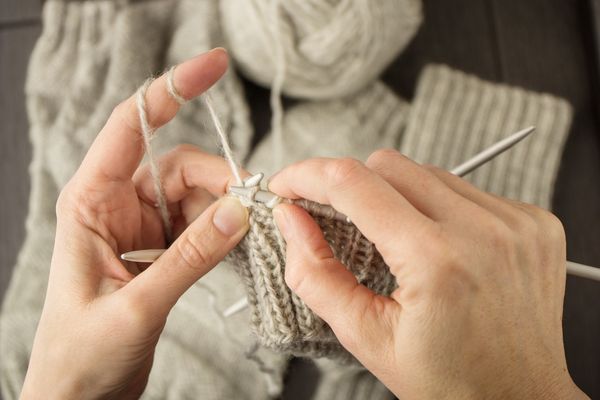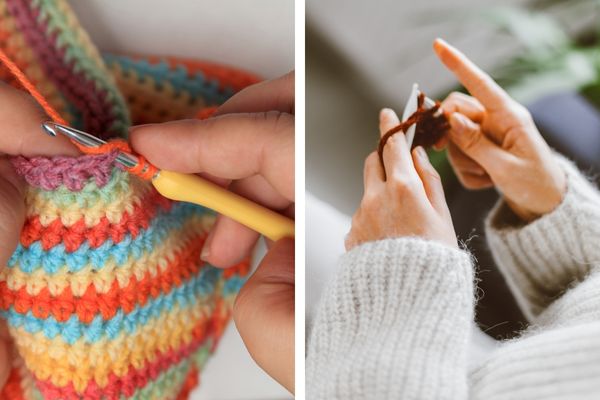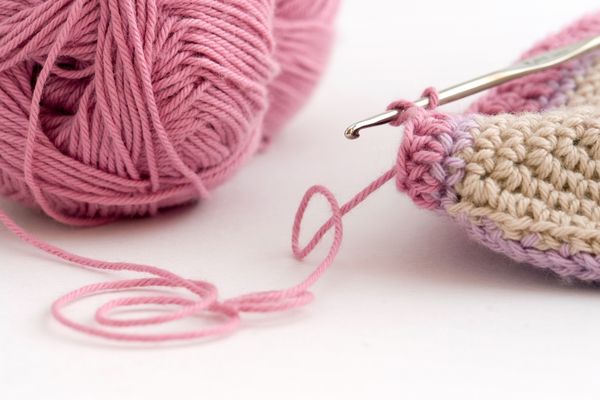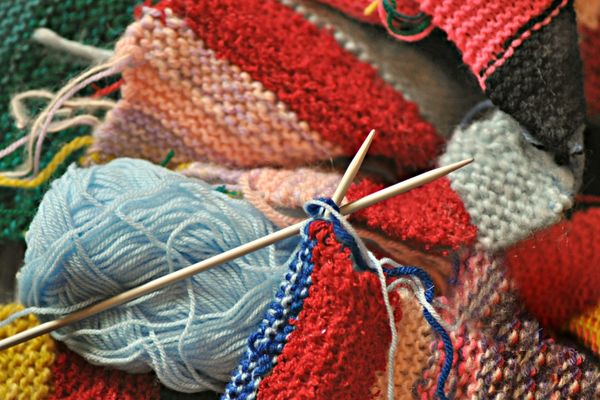Crochet and knitting are two popular forms of working with yarn or thread to create clothing, decorative items, and useful objects such as tote bags and blankets. Each form has its merits, and either can provide a fun, creative outlet and a meditative respite from your daily grind.
Although each involves yarn, they differ in various ways, and many people lean toward one favorite. Read on for some background on crocheting and knitting and the main differences to help you decide which one is right for you.
Table of Contents
Historical difference of Crocheting and Knitting
Crocheting’s origins are a bit hazy, and some speculate that it originated in Europe in the 16th century. Some historians think the craft was developed in ancient China, South America, or Arabia. A common theory says crocheting evolved as a less expensive alternative to lace-making because it used less thread and took less time.
Crochet is a French word that means “hook,” which is the tool used to work the yarn. As crocheting grew in popularity during the 19th and 20th centuries, more people worldwide learned and practiced the beloved craft. Crocheting techniques can produce items ranging from clothing and accessories to toys and home décor.
Knitting’s history is unclear, and historians believe it originated in Egypt or Arabia around 1000 CE. During the medieval period, knitting spread throughout Europe and was used to create warm garments and textiles for other purposes.
Knitting produced a tighter, more durable fabric than other methods used in medieval days, and over time became more sophisticated as crafters invented new stitches and techniques. Today, knitting is another yarn art form that is embraced by many and practiced worldwide. Knitted items include clothing, accessories, home décor, and art.
Key Differences Between Crochet and Knitting
So far, both forms of yarn work seem similar, right? They each produce similar types of output using yarn. They do have several differences, however. If you want to know which is better, the answer depends on whom you ask.
| Feature | Crochet | Knitting |
| Technique | Uses a single crochet hook | Uses two or more knitting needles |
| Stitches | Typically involves one active loop at a time | Involves multiple active stitches on the needles |
| Fabric Structure | Generally produces a thicker and denser fabric | Often creates a softer and more elastic fabric |
| Ease of Learning | Can be easier for beginners due to using one hook | May have a steeper learning curve for some beginners |
| Speed of Work | Often considered faster for some projects | May be perceived as slower for certain items |
| Versatility | Well-suited for creating intricate designs and lace | Suitable for a wide range of textures and patterns |
| Yarn Usage | Typically uses more yarn compared to knitting | Generally uses less yarn for the same project |
| Undoing Stitches | Easier to unravel and correct mistakes | Unraveling can be more challenging and time-consuming |
| Finished Look | Creates a distinct, textured look | Results in a smoother and more even appearance |
| Projects | Often used for items like blankets, scarves, and hats | Commonly used for garments, socks, and accessories |
| Portability | More portable due to the use of a single hook | Requires carrying multiple needles and yarn |
| Tension Control | Generally easier to maintain consistent tension | May require more practice for consistent tension |
What’s easier crochet or knitting?
Crochet and knitting are both crafts, and some people find one easier than the other. Here are a few things to consider:
- Stitches: In crochet, you work with one stitch at a time, which can be simpler for beginners. Knitting often involves managing multiple stitches simultaneously, which some people find a bit trickier.
- Tools: Crochet uses a single hook, while knitting uses two needles. Handling one hook might be easier for beginners than managing two needles.
- Basic Stitches: Crochet has fewer basic stitches, making it quicker to learn. Knitting has more stitches, which can be a bit more overwhelming for beginners.
- Tension: Maintaining even tension is important in both crafts, but some find it easier in crochet since you only work with one stitch at a time.
- Projects: The type of projects you like might influence your choice. Some projects work better with crochet, while others are more suited for knitting.
In the end, it’s about personal preference. Try both and see which one you enjoy more. Many people find that once they learn one, picking up the other becomes easier.
Crocheting
When it comes to the basic technique, crochet is like making a series of knots, while knitting resembles a bunch of loops that create “V” shapes and link together.

Each craft is suited to different types of outputs, depending on the results you prefer. One might argue that crocheting takes less time to learn than knitting, but both yarn techniques are relatively easy to learn when producing a simple item, such as a square potholder.
Hand Knitting
On the other hand, many crocheters and knitters have taken their craft to expert levels, producing spectacularly beautiful, complex works of fiber art using techniques that take tons of practice and know-how to make.

Some artists have even created crocheted jewelry using fine-gauge wire instead of yarn and working in beads and gems.
You can find some difference between crochet and knitting from the picture.

Other crochet and knitting difference
So now, consider the following, which describes some of the differences between basic crochet and knitting:
- Crocheting uses one hook, while knitting uses two needles.
- Crocheting produces a fabric that is sturdier and thicker with a little stretch, while knitting produces a thinner, stretchier, and more flexible fabric.
- In crocheting, each stitch is taller, and you can add more variations to increase the stitch height compared to knit stitches.
- Crocheting is usually faster than knitting, as each stitch is completed individually, whereas knitting requires a completed row of stitches to finish a section.
- Crocheting can be learned faster than knitting because there are fewer stitches to master.
- Different types of crochet techniques can create more intricate shapes and patterns, such as three-dimensional items more easily using basic techniques than knitting.
- Crocheting is often used to create the edging on a knitted garment or for finishing details on accessories.
- Crocheting can use a wider variety of yarns and fibers than knitting. However, crocheting also uses more yarn which might matter if you want to use expensive wool or other high-end fibers.
- Crocheting uses fewer stitches per inch than most knitting, making it easier to see individual stitches, find and rework mistakes, and make other adjustments.
- Crocheting is an ideal craft form for creating stuffed toys such as amigurumi due to its easy production of three-dimensional shapes. Knitters more commonly make garments such as sweaters and accessories like blankets.
Conclusion

Most of the time, same type of crochet yarn and knitting yarn is used. But sometime knitting yarn has some special type of finishes for better appearance. The thread uses in bot crochet and knitting both depends on the hook the knitter used.

Today, Crochet and knitting yarn produce from woolen yarn (natural yarn), or nylon (synthetic yarn). They came with a wide range of diameters and characteristics, which makes them better for crocheting and knitting.
Author of this article: Jenny Fries

Jenny Fries, a freelance writer, specializes in writing about technology, business, and health. She offers freelance blogging and content writing for SEO. When she’s not writing, Fries likes to travel, cook, and write vacation plans.
